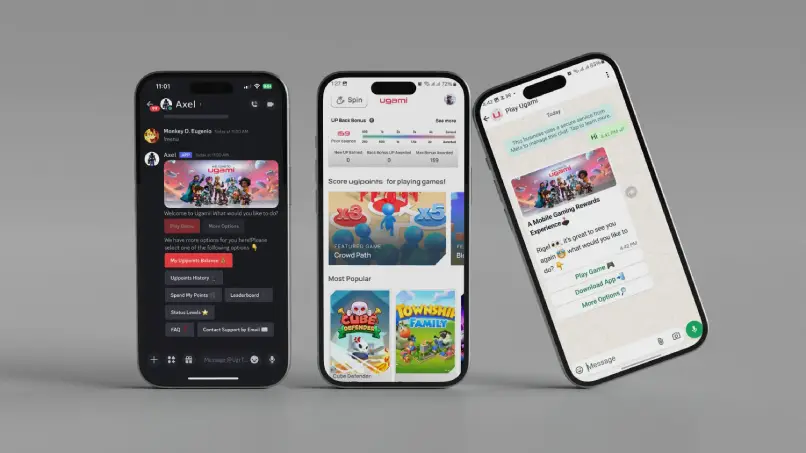Play to earn rewards: the ultimate way to enjoy gaming while earning tangible rewards
Why Play-to-Earn Rewards Are Changing the Means You Play and Make
The emergence of play-to-earn versions indicates a remarkable change in the gaming landscape, welcoming players to discover not just the amusement worth of games however additionally their possible as income-generating systems. Understanding these dynamics increases relevant questions concerning the future of video gaming and the ramifications for both gamers and designers alike.
Development of Play-to-Earn Designs
Over the last few years, the pc gaming industry has actually witnessed a considerable improvement with the appearance of play-to-earn versions, basically modifying just how gamers engage with digital environments. This ingenious method enables gamers to obtain substantial incentives with their in-game activities, producing a shift from typical video gaming paradigms where enjoyment and competition were the key inspirations.
Play-to-earn models utilize blockchain modern technology and non-fungible symbols (NFTs) to supply players with possession of in-game assets, which can be traded or cost real-world money. Consequently, players are incentivized to spend time and initiative into games, fostering a feeling of company and financial possibility. play to earn rewards. This shift has attracted a varied gamer base, including those that may have previously viewed pc gaming as a simply leisure task
A number of platforms have actually arised, showcasing successful executions of this design, such as Axie Infinity and Decentraland. These platforms have not just produced considerable revenue yet also triggered discussions around the sustainability and ethics of such financial systems. As play-to-earn models proceed to develop, they assure to redefine the connection between gamers, developers, and the more comprehensive digital economic situation, leading the means for a brand-new era in video gaming.
Advantages for Players
As players engage with play-to-earn versions, they open a range of benefits that prolong past mere home entertainment. Unlike typical gaming, where players invest time and money without concrete returns, play-to-earn systems enable players to gain copyright or in-game properties that can be converted to real-world value.
Furthermore, play-to-earn designs advertise neighborhood building amongst gamers. Players usually team up to attain common objectives, thereby cultivating social connections that improve the total experience. This feeling of neighborhood can cause participating gameplay, where gamers share techniques and resources, enhancing both individual and team accomplishments.
Moreover, these models can democratize access to gaming by allowing players from varied economic backgrounds to profit monetarily. By getting involved in play-to-earn ecological communities, people can get skills and expertise concerning blockchain innovation, more widening their occupation opportunities in the burgeoning electronic economic climate. Ultimately, the advantages for players extend well past gameplay, affecting their social, economic, and academic landscapes positively.
Obstacles in the Environment
While the play-to-earn environment presents considerable possibilities, it is not without its challenges. Changes in worth can hinder potential gamers who seek steady revenue streams.
Another challenge is the threat of scams and deceptive plans that can torment the community. Players may come across deceitful platforms promising high benefits however inevitably leading to economic loss. Making certain trust fund and protection is important for the long-term stability of play-to-earn versions.
Moreover, the environmental impact of blockchain video gaming can not be ignored. The energy usage linked with mining and purchase handling raises moral questions about sustainability. Video game programmers need to find a balance in between satisfying gamers and lessening environmental footprints.
Finally, the regulative landscape is still developing, posturing potential risks for developers and gamers alike. Uncertain lawful structures can impede development and restrict the growth of play-to-earn communities. Dealing with these challenges is important for understanding the complete potential of this transformative video gaming standard.
The Function of Blockchain Technology
Blockchain innovation works as the backbone of the play-to-earn ecosystem, addressing several of the difficulties previously outlined. By utilizing decentralized ledgers, blockchain ensures openness and look here safety in transactions. Gamers can with confidence make and trade in-game assets, recognizing that possession is verifiable and exempt to control.

Tokenization of assets plays a crucial duty, giving gamers true possession of their in-game things, which can be gotten, offered, or traded on numerous markets. This urges a dynamic second market, where players can monetize their skills and time bought the video game.
Moreover, blockchain innovation makes it possible for interoperability between various video games and platforms, allowing players click to investigate to lug their assets throughout various communities. This adaptability not only improves customer experience but likewise promotes a much more comprehensive gaming atmosphere, inevitably improving the landscape of gaming and earning.
Future Patterns in Gaming
The video gaming sector is on the verge of a transformative development, driven by arising innovations and changing player expectations. As play-to-earn designs gain grip, gamers are significantly looking for immersive experiences that blend amusement with tangible rewards. This shift is triggering designers to introduce, concentrating on developing engaging gameplay that fosters area and communication.
One noteworthy fad is the integration of virtual fact (VIRTUAL REALITY) and boosted truth (AR), improving the video gaming experience by supplying much deeper immersion and interactive settings. In addition, innovations in artificial knowledge are enabling much more sophisticated non-player characters (NPCs) and adaptive gameplay, customizing experiences to specific player preferences.

Final Thought
In final thought, the play-to-earn design is considerably transforming the pc gaming landscape by making it possible for players to derive real-world value from their in-game tasks. This standard shift not only boosts player engagement and financial investment yet additionally elevates difficulties that have to be dealt with to ensure sustainability within the ecosystem. As blockchain technology proceeds to help with ownership of electronic assets, the future of gaming promises more advancement and opportunities for gamers across varied backgrounds.